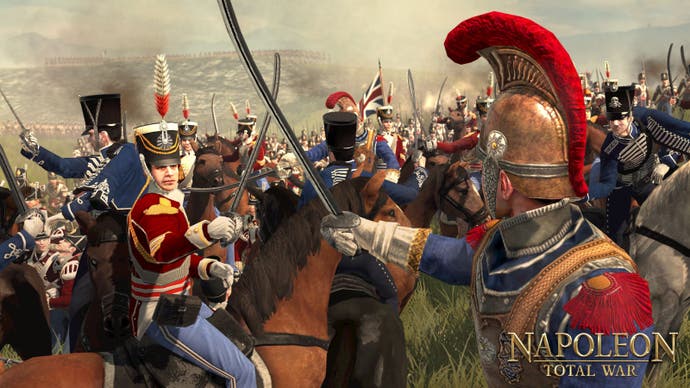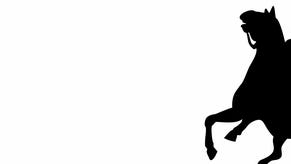Napoleon: Total War
Superiority complex.
Industrial towns are focused on arms and armaments, producing extra troops, while economic towns spool out cash and intellectual towns produce gentleman scholars, a replacement for the rake characters which have passive, area-of-effect espionage skills rather than the direct approach of their predecessors. Resources remain decentralised from towns and cities, and, in deference to Napoleon's ability to choose only to fight the most strategically important battles, are more influential than before. Taking a particularly effective horse-breeding area will grant your cavalry extra prowess, and deny it to your enemy. Environmental factors also extend to attritional casualties, as spending time in tough terrain or hostile territory will wear down your units and whittle their numbers. Over-extension of supply lines can quickly become a problem. One old environment factor which has been re-embraced is Rome and Medieval's concept of pillage. Occupying a territory means you can gain gradual bonuses from its resources, but a quick and dirty plunder will net you much more far more quickly. Of course, attempting to govern a people whose fields and towns have been looted by your troops presents its own problems.
Incredibly, every one of the game's 322 units are new, featuring real-life specialist and legendary units such as the Blackwatch. Units are no longer the same across factions, either; Prussian infantrymen will be differently skilled than their British counterparts, meaning that generals must learn the particular foibles of each to ensure maximum tactical efficiency. For example, men of the Russian line may not be as well-drilled as the Prussians, resulting in slightly higher reload times, but their morale and close-combat skills are better instead, meaning they're more likely to withstand the deadly cavalry charges of the era. The tactical impact of this may well be lost on many of us, as the differences will not be incredibly dramatic, but to many of the real enthusiasts who call Total War home it will become a crucial factor. The traits of generals will also have a greater influence on battle, auras of command will surround these heroes, improving the morale and combat effectiveness of units around them.

Naval battles make a welcome return, and are also subject to the fine-tuning seen elsewhere. Ships can now be withdrawn from the line of battle in order to facilitate makeshift repairs - crews will abandon gun emplacements to shore up scallions and riven timbers, allowing admirals to maintain a fleet's integrity should its warships suffer too much punishment. The AI's path-finding and grouping mechanics have been updated, too - countering some of the very few problems which Kieron had in his otherwise glowing review of Empire. As Creative Assembly's passionate PR explained, they've had decades to perfect land battles, but naval engagements are totally new, and as such were always going to require refinement.
This new, more personal narrative approach is something of a diversion for the series, but one which could prove to be very interesting indeed, given the scope of figures which it can be applied to. History is littered with great generals, and although there aren't currently any announced plans to pursue this line of development beyond Napoleon, it must be a tempting path to follow.
Napoleon is a standalone game due out in February 2010, but it will also integrate into Empire, adding units and new tech trees appropriately as the timeline progresses. The first video can be found on Eurogamer TV.


